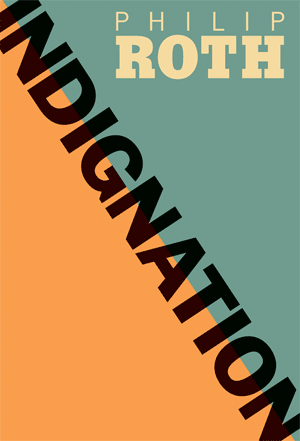 Philip Roth’s new novel—not Exit Ghost, which appeared last October, but Indignation, which will arrive this fall—was sent to reviewers in April for an early look. After I read it, I found myself wondering how it will be reviewed. Not whether the judgments will be positive or negative—as is the case with most serious books, we can assume the novel will collect opinions that shuttle between extremes of sympathy and hostility. Rather, I am curious over the methodology of its future reader-evaluators. How much of Roth’s prior work they will feel they should read before passing judgment on his latest effort?
Philip Roth’s new novel—not Exit Ghost, which appeared last October, but Indignation, which will arrive this fall—was sent to reviewers in April for an early look. After I read it, I found myself wondering how it will be reviewed. Not whether the judgments will be positive or negative—as is the case with most serious books, we can assume the novel will collect opinions that shuttle between extremes of sympathy and hostility. Rather, I am curious over the methodology of its future reader-evaluators. How much of Roth’s prior work they will feel they should read before passing judgment on his latest effort?
Roth’s productivity, with its now-annual alarms, begs that a critic ask a few cumbersome questions that apply when approaching the work of any number of contemporary authors. Oates, Updike, Munro, Marías, Kundera, Coetzee, McEwan, T. C. Boyle, Amis, Pynchon, DeLillo, Rushdie: when reviewing the work of such generative authors, how familiar should the critic be with such writers’ earlier output? Should one have read, when sitting down to review Saturday or The Empress of Florence or My Sister, My Love, their writers’ other books? If not, why? If so, how many?
With Roth, a reader familiar with only Goodbye Columbus and Portnoy’s Complaint will necessarily form a very different picture of the preoccupations, tendencies, and techniques of the author in question than will a reader intimate with The Counterlife and Operation Shylock (or, alternately, The Breast and “The Prague Orgy”—one can, with Roth, produce a baker’s dozen of such pairs).
A knowledge of the first pair (Columbus/Complaint) alone would lead one to describe Roth as an attentive domestic realist, a trusting realist, one who employs various modes of literary realism (the lyric; the satiric) to probe various conventions of human behavior. The second pair (Counterlife/Shylock), though, would suggest a very different writer, one fascinated with form but not fully trusting of it, one who makes form as much a part of his story as character—who makes form, if not quite a character in the novel, a leading characteristic of the novel. And the last pair (Breast/Orgy) might suggest another author still, a miniaturist, one seeking to depict people trapped by impossible circumstances, whether fanciful or political.
Much as the historian assigned to review, say, Saul Friedlander’s two-volume Nazi Germany and the Jews would be expected to have read a library of similar studies to be deemed a reliable arbiter, a critic assigned a novel by an established writer should bring to bear not merely a knowledge of The Novel but a knowledge of that particular writer’s engagement with the form. And although Roth and the writers listed above, owing to decades of industry, have made a broad knowledge of their work impractical to acquire, such knowledge, precisely because of its increasing rarity, becomes, for a critic, that much more essential to possess.
It is not that knowledge of this kind indemnifies the critic against shortsightedness; rather, it protects him against worse sins: apathy and ignorance.
































































































